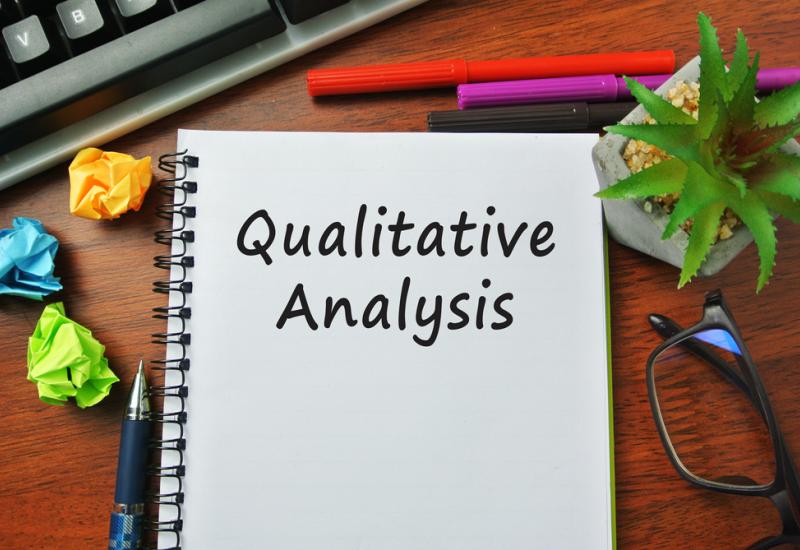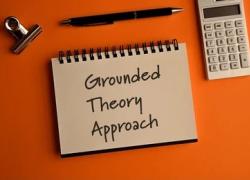Does the grounded theory research study need a theoretical framework?
Grounded theory research studies typically do not start with a pre-established theoretical framework in the traditional sense. The hallmark of grounded theory is its inductive approach, emphasizing the development of theory from the data rather than testing a pre-existing theory. However, this doesn’t mean that grounded theory studies lack a theoretical perspective or engagement with existing literature.
Grounded theory generally discourages imposing existing theories as a framework in the early stages of research. Its strength lies in allowing data to organically drive theory development. However, existing theories can play a supportive role in grounded research in several ways.
Existing theories are broad ideas that help you pay attention to certain aspects of your data and guide your initial data collection and analysis. While grounded theory is all about letting the data guide the development of your own theory, there are some existing theories that can be helpful as a starting point or reference point for your research. Here are some ways existing theories can be used in grounded research studies:
1. Initial sensititization:
- Existing theories can sensitize you to relevant concepts and dimensions of the phenomenon you’re studying. They can offer lenses through which to interpret your data and identify potential categories to code. Existing theories are broad ideas that help you pay attention to certain aspects of your data and guide your initial data collection and analysis. These concepts don’t necessarily predict specific outcomes, but they help you focus on relevant details and open up new avenues for exploration.
- If you’re studying the experiences of refugees in a new country, you might use theories of cultural adaptation, identity formation, and social integration as sensitizing concepts. These theories wouldn’t tell you what the refugees will experience, but they would help you pay attention to things like their struggles with language, their efforts to maintain their cultural traditions, and their interactions with the host community.
- Similarly, researching teacher burnout might benefit from sensitizing yourself to existing theories of stress and coping mechanisms.
2. Comparative analysis:
- As you analyze your data and develop categories, you can compare them to existing theories to identify similarities, differences, and new insights. This can help refine your emerging theory and ensure its originality.
- Existing theories can also be used as a basis for comparison and contrast with your own emerging theory. This can help you to identify the unique contributions of your research and to understand how it fits within the broader field of knowledge.
- If you’re studying the role of social media in social movements, you might compare your findings to existing theories of collective action and social change. This could help you to understand how social media is changing the way people mobilize and organize, and to identify the specific mechanisms through which it is having this effect.
- Likewise, comparing your findings on teacher burnout to existing models of burnout in other professions can highlight unique factors within the teaching context.
3. Negative case analysis:
- Existing theories can be used to identify negative cases, data points that don’t fit your emerging theory. This can lead to further refinement and development of your theory, ensuring it encompasses the full range of experiences within your data.
- These cases can be particularly valuable for grounded theory research, as they can push you to refine your emerging theory and make it more nuanced.
- If you’re studying the relationship between stress and coping mechanisms, you might use a theory of stress management to predict that people who experience high levels of stress will use more coping strategies. However, if you find some people in your study who experience high stress but don’t use any coping strategies, this could be a negative case that challenges your initial theory and leads you to explore other factors that might be influencing their behavior.
- In the same vein, if your theory of teacher burnout suggests all teachers experience symptoms similarly, then identifying teachers who don’t fit this pattern can lead to a more nuanced understanding.
4. Integration and explanation:
- In the later stages of grounded theory research, existing theories can be used to integrate your findings into a broader theoretical context. This can enhance the generalizability and explanatory power of your theory.
- For example, your theory of teacher burnout might help explain existing findings on classroom management or student achievement.
5. Choosing relevant theories:
- Not all existing theories are equally useful for your specific grounded research. Choose theories that are relevant to your research topic. Select theories that are relevant, broad enough, and well-established.
- Avoid highly specific theories that could impose limitations on your data analysis and potential findings. Utilize theories with a strong empirical support and a solid foundation in your field. They should align with the general area of your study and help frame your research question.
- Ultimately, remember that while existing theories can inform and enrich your grounded research, the data itself should be the driving force in developing new knowledge and understanding. Use existing frameworks thoughtfully and critically, maintaining a flexible and open-minded approach to allow your research to evolve organically.
6. Maintaining a critical perspective:
- Understandably, the goal of grounded theory is to develop new knowledge, not simply confirm existing theories, therefore, use existing frameworks strategically without letting them bias your research or limit its potential for discovery.
- Be open to the possibility that your data may lead you to entirely new understandings that deviate from established explanations.
5. Key points to remember:
- Remember that the emphasis in grounded theory is on letting the data drive the theorizing, not forcing existing theories onto your findings. Therefore, it is advised to use existing theories cautiously and avoid adopting them uncritically.
- Be transparent about how you use existing theories in your research and acknowledge their limitations and the existing theories should not constrain your research or limit your ability to discover new insights.
- The goal is not to prove or disprove existing theories, but to use them as a springboard for your own theoretical development. Therefore, be explicit about how you are using existing theories in your research and how your findings relate to them.
- The specific theories relevant to your research will depend on your chosen area of study and the research question you’re exploring.
6. Which theories can be used as a theoretical lens?
There are a number of theories that can be used as a theoretical lens for grounded theory research studies. Some of these are listed here:
- Symbolic Interactionism
- Social Cognitive Theory
- Feminist Theory
- Critical Race Theory
- Organizational Culture Theory
Conclusion:
Grounded theory, at its core, aims to develop new theories directly from the data, rather than relying on existing frameworks. This means that, in theory, it doesn’t require a pre-established theoretical framework. However, the relationship between grounded theory and existing theories is more nuanced than a simple yes or no answer. Ultimately, the decision of whether or not to use a theoretical framework in your grounded theory study depends on your specific research question, data, and goals. If you choose to use existing theories, do so cautiously and transparently, ensuring they inform rather than dictate your research.
In essence, grounded theory research is a flexible and dynamic process that allows for the discovery of new insights and patterns without being bound by preconceived theoretical notions. Researchers remain open to the rich and varied perspectives that may emerge from the data, contributing to the unique contribution of grounded theory to qualitative research.
Remember, the key is to maintain a flexible and open-minded approach that allows for the emergence of new knowledge from the data. So while a formal theoretical framework is not mandatory for grounded theory, there are ways to incorporate existing theories in a way that aligns with the methodology’s core principles.


















